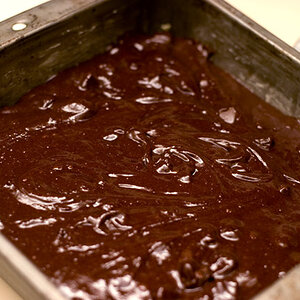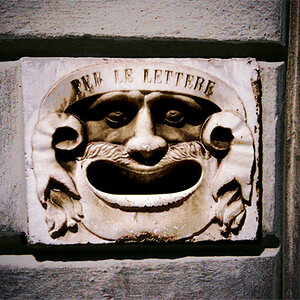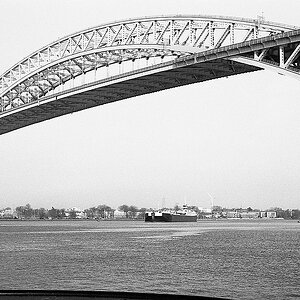Navigation
Install the app
How to install the app on iOS
Follow along with the video below to see how to install our site as a web app on your home screen.

Note: This feature currently requires accessing the site using the built-in Safari browser.
More options
You are using an out of date browser. It may not display this or other websites correctly.
You should upgrade or use an alternative browser.
You should upgrade or use an alternative browser.
Zoom Lenses: The Awful Truth
- Thread starter cgw
- Start date
- Joined
- Apr 9, 2009
- Messages
- 41,401
- Reaction score
- 5,706
- Location
- Iowa
- Website
- kharrodphotography.blogspot.com
- Can others edit my Photos
- Photos OK to edit
Which is why virtually all of the photographs I ever made for customers and clients were made with prime lenses.
OGsPhotography
No longer a newbie, moving up!
- Joined
- Nov 17, 2015
- Messages
- 809
- Reaction score
- 385
- Can others edit my Photos
- Photos OK to edit
Bottom line, there is no awful truth.
Im glad I dont frame my subjects in the corner is my conclusion as the thing I didn't want to know.
Really, I didn't want to know that.
"A lot of people are aware that while a zoom can be as sharp as a prime in the center of the image, it rarely is in the corners."
Groundbreaking.
"So What Does It Mean?
There are no stupid questions. But there are stupid comments on forums. I will try not to make those.
For practical photography not much really, other than just to make you more aware of reality. Here are the few takeaway messages for photographers:
Nothing wrong with a plenty good prime is there? Aint that the truth?
My comments may be stupid but this is a forum afterall.
Im glad I dont frame my subjects in the corner is my conclusion as the thing I didn't want to know.
Really, I didn't want to know that.
"A lot of people are aware that while a zoom can be as sharp as a prime in the center of the image, it rarely is in the corners."
Groundbreaking.
"So What Does It Mean?
There are no stupid questions. But there are stupid comments on forums. I will try not to make those.
For practical photography not much really, other than just to make you more aware of reality. Here are the few takeaway messages for photographers:
- A great zoom is not as good as a good prime at comparable apertures, but it’s plenty good, especially in the center of the image.
- Zooms have more variation, and most copies of a given zoom will vary at different focal lengths. If someone asks me for the best copy of a zoom, my first response would always be ‘at which focal length?’ In this case, the sharpest copy at 200mm is not the sharpest at 70mm."
Nothing wrong with a plenty good prime is there? Aint that the truth?
My comments may be stupid but this is a forum afterall.
- Joined
- Oct 3, 2013
- Messages
- 11,518
- Reaction score
- 4,788
- Location
- Louisville, Nebraksa - United States
- Can others edit my Photos
- Photos OK to edit
So if I really want corner to corner sharpness I just shoot a little wider and crop out the corners.
Omg! The inhumanity of it all! It's just way too complicated... lol
Sent from my N9518 using Tapatalk
Omg! The inhumanity of it all! It's just way too complicated... lol
Sent from my N9518 using Tapatalk
Ysarex
Been spending a lot of time on here!
- Joined
- Nov 27, 2011
- Messages
- 7,135
- Reaction score
- 3,681
- Location
- St. Louis
- Can others edit my Photos
- Photos OK to edit
Yep, those zooms totally suck. Look how the kit zoom on my camera hugely ruined this photo:

I can't even look at it. First thing I see are those soft corners in the sidewalk and that's it -- ruined!!
(Above image un-cropped except for normal distortion correction applied from lens profile and very slight vertical keystone correction).
Here's a 100% look at the two corners and you can see just how horrible the corner deterioration really is:

The convenience of a zoom lens just isn't worth the loss.
Joe
I can't even look at it. First thing I see are those soft corners in the sidewalk and that's it -- ruined!!
(Above image un-cropped except for normal distortion correction applied from lens profile and very slight vertical keystone correction).
Here's a 100% look at the two corners and you can see just how horrible the corner deterioration really is:
The convenience of a zoom lens just isn't worth the loss.
Joe
cherylynne1
No longer a newbie, moving up!
- Joined
- Dec 8, 2015
- Messages
- 663
- Reaction score
- 254
- Website
- www.flickr.com
- Can others edit my Photos
- Photos OK to edit
I've been thinking about getting a good zoom for awhile....I've only really used kit zooms, and those are so bad in comparison to primes that I use primes almost all the time unless I'm just taking snapshots. But recently as I've looked through some reviews, the main complaint is almost always in the corners. I almost never need sharp corners. Most of the time I want blurry corners.
But the biggest issue for me in pleasing bokeh. Primes are still generally much better than zooms in that regard. However, unless I need extreme subject isolation, I think a good zoom would do the job most of the time.
But the biggest issue for me in pleasing bokeh. Primes are still generally much better than zooms in that regard. However, unless I need extreme subject isolation, I think a good zoom would do the job most of the time.
- Joined
- Jun 7, 2012
- Messages
- 15,469
- Reaction score
- 7,848
- Location
- Central Florida
- Website
- www.flickr.com
- Can others edit my Photos
- Photos NOT OK to edit
because you cant possibly do professional quality work with a zoom lens....
at first I thought Thom Hogan had written it, based on how extremely biased and linear the article was with absolutely no thought given to actual real world conditions...but when i saw that the founder of lens rentals had done it...it kinda made sense. (not the article, the writer..the article was still bad)
the ENTIRE PIECE was based on MTF scores and pixel peeping, which have so very little relevance in real world shooting, especially when NOT looking at images at 300%.
the REAL awful truth is that the entire article was at best, technically accurate but extremely misleading to the general public... and at worst, a shameless and purposefully misleading push for more prime lens rentals. (less to go wrong or have to repair with primes, so push those over the zooms)
im guessing its a shameless plug and money grab.
at first I thought Thom Hogan had written it, based on how extremely biased and linear the article was with absolutely no thought given to actual real world conditions...but when i saw that the founder of lens rentals had done it...it kinda made sense. (not the article, the writer..the article was still bad)
the ENTIRE PIECE was based on MTF scores and pixel peeping, which have so very little relevance in real world shooting, especially when NOT looking at images at 300%.
the REAL awful truth is that the entire article was at best, technically accurate but extremely misleading to the general public... and at worst, a shameless and purposefully misleading push for more prime lens rentals. (less to go wrong or have to repair with primes, so push those over the zooms)
im guessing its a shameless plug and money grab.
- Joined
- Jul 8, 2005
- Messages
- 45,747
- Reaction score
- 14,806
- Location
- Victoria, BC
- Website
- www.johnsphotography.ca
- Can others edit my Photos
- Photos OK to edit
I've shot LOTS of paid work with zoom lenses; never had a customer complain about sharpness yet. I've even won and/or placed highly in a few print competitions with images shot with zoom lenses.
I think that is the point of the article. To quote the last bit of the article.the ENTIRE PIECE was based on MTF scores and pixel peeping, which have so very little relevance in real world shooting, especially when NOT looking at images at 300%.
"For practical photography not much really, other than just to make you more aware of reality. Here are the few takeaway messages for photographers:
- A great zoom is not as good as a good prime at comparable apertures, but it’s plenty good, especially in the center of the image.
- Zooms have more variation, and most copies of a given zoom will vary at different focal lengths. If someone asks me for the best copy of a zoom, my first response would always be ‘at which focal length?’ In this case, the sharpest copy at 200mm is not the sharpest at 70mm.
We have more than our fair share of measurebators around this site. Not only regarding zoom lenses or lenses overall but camera bodies and brands as well.
- Joined
- Jun 7, 2012
- Messages
- 15,469
- Reaction score
- 7,848
- Location
- Central Florida
- Website
- www.flickr.com
- Can others edit my Photos
- Photos NOT OK to edit
I think that is the point of the article. To quote the last bit of the article.the ENTIRE PIECE was based on MTF scores and pixel peeping, which have so very little relevance in real world shooting, especially when NOT looking at images at 300%.
"For practical photography not much really, other than just to make you more aware of reality. Here are the few takeaway messages for photographers:
But for measurebating, there is a very pertinent point that needs to be made: Measurebating zooms is a fool’s errand."
- A great zoom is not as good as a good prime at comparable apertures, but it’s plenty good, especially in the center of the image.
- Zooms have more variation, and most copies of a given zoom will vary at different focal lengths. If someone asks me for the best copy of a zoom, my first response would always be ‘at which focal length?’ In this case, the sharpest copy at 200mm is not the sharpest at 70mm.
We have more than our fair share of measurebators around this site. Not only regarding zoom lenses or lenses overall but camera bodies and brands as well.
most of that is completely negated if your using a FX zoom on a DX camera anyway...
"I" think the point of the article was for Mr. lensrental to show off his amazing pixel peeping and MTF score regurgitation abilities.
the entire article could have been summed up in one sentence.
"zooms are softer around the edges than primes, if your not shooting a FX lens on a DX camera, shoot a little wide and crop" boom. done. basic photography 101 stuff. didn't need a doctorate in digital engineering to tell us that. it was a totally overthought process for an underwhelming article.
but hey, its not like any of MY papers won any Pulitzer's.
yea, your totally right about measurebators though.
He was far to wordy to get around to the final point. However his method does bring up one thought. When newbs bring concerns about a particular lens and some sort of softness issues it might be good to keep in mind that different copies of the same lens very well may not perform the same. All to often we see the standard, well there must be something wrong with your lens because mine is tack sharp at ***mm's, etc. There is a difference between different copies and an obviously defective lens. When the photos are so out of focus to not be able to tell what the subject was, that is a defective lens. If my copy at a certain focal length and aperture is sharper or softer than yours, that is often the nature of the lens.I think that is the point of the article. To quote the last bit of the article.the ENTIRE PIECE was based on MTF scores and pixel peeping, which have so very little relevance in real world shooting, especially when NOT looking at images at 300%.
"For practical photography not much really, other than just to make you more aware of reality. Here are the few takeaway messages for photographers:
But for measurebating, there is a very pertinent point that needs to be made: Measurebating zooms is a fool’s errand."
- A great zoom is not as good as a good prime at comparable apertures, but it’s plenty good, especially in the center of the image.
- Zooms have more variation, and most copies of a given zoom will vary at different focal lengths. If someone asks me for the best copy of a zoom, my first response would always be ‘at which focal length?’ In this case, the sharpest copy at 200mm is not the sharpest at 70mm.
We have more than our fair share of measurebators around this site. Not only regarding zoom lenses or lenses overall but camera bodies and brands as well.
most of that is completely negated if your using a FX zoom on a DX camera anyway...
"I" think the point of the article was for Mr. lensrental to show off his amazing pixel peeping and MTF score regurgitation abilities.
the entire article could have been summed up in one sentence.
"zooms are softer around the edges than primes, if your not shooting a FX lens on a DX camera, shoot a little wide and crop" boom. done. basic photography 101 stuff. didn't need a doctorate in digital engineering to tell us that. it was a totally overthought process for an underwhelming article.
but hey, its not like any of MY papers won any Pulitzer's.
yea, your totally right about measurebators though.
It used to be pretty common around here for people to talk about trying different copies and picking the one they like. I still do that. Many folks today think that mass production means exactly identical when it does not.
- Joined
- Jun 7, 2012
- Messages
- 15,469
- Reaction score
- 7,848
- Location
- Central Florida
- Website
- www.flickr.com
- Can others edit my Photos
- Photos NOT OK to edit
He was far to wordy to get around to the final point. However his method does bring up one thought. When newbs bring concerns about a particular lens and some sort of softness issues it might be good to keep in mind that different copies of the same lens very well may not perform the same. All to often we see the standard, well there must be something wrong with your lens because mine is tack sharp at ***mm's, etc. There is a difference between different copies and an obviously defective lens. When the photos are so out of focus to not be able to tell what the subject was, that is a defective lens. If my copy at a certain focal length and aperture is sharper or softer than yours, that is often the nature of the lens.I think that is the point of the article. To quote the last bit of the article.the ENTIRE PIECE was based on MTF scores and pixel peeping, which have so very little relevance in real world shooting, especially when NOT looking at images at 300%.
"For practical photography not much really, other than just to make you more aware of reality. Here are the few takeaway messages for photographers:
But for measurebating, there is a very pertinent point that needs to be made: Measurebating zooms is a fool’s errand."
- A great zoom is not as good as a good prime at comparable apertures, but it’s plenty good, especially in the center of the image.
- Zooms have more variation, and most copies of a given zoom will vary at different focal lengths. If someone asks me for the best copy of a zoom, my first response would always be ‘at which focal length?’ In this case, the sharpest copy at 200mm is not the sharpest at 70mm.
We have more than our fair share of measurebators around this site. Not only regarding zoom lenses or lenses overall but camera bodies and brands as well.
most of that is completely negated if your using a FX zoom on a DX camera anyway...
"I" think the point of the article was for Mr. lensrental to show off his amazing pixel peeping and MTF score regurgitation abilities.
the entire article could have been summed up in one sentence.
"zooms are softer around the edges than primes, if your not shooting a FX lens on a DX camera, shoot a little wide and crop" boom. done. basic photography 101 stuff. didn't need a doctorate in digital engineering to tell us that. it was a totally overthought process for an underwhelming article.
but hey, its not like any of MY papers won any Pulitzer's.
yea, your totally right about measurebators though.
It used to be pretty common around here for people to talk about trying different copies and picking the one they like. I still do that. Many folks today think that mass production means exactly identical when it does not.
very true...but the same thing can happen with prime lenses too, its not just relegated to zooms, albeit more prevalent with them.
but, all the MTF scores in the world wont tell you if you have a defective lens, or a copy thats poor at a certain focal length.
you just have to shoot with it and see.
my biggest problem is that articles like this perpetuate the notion that if a lens doesnt produce super tack sharp images, it isnt good.
so if you want good pictures, you have to have the sharpest lens.
if you want the sharpest lens, you have to look at the MTF scores and pixed peep at 300%.
we used to judge a lens by shooting with it and looking at the results it produced...the bokeh, the color, the detail, flare and ghosting, etc etc...
now people seem to judge lenses by their MTF scores.
Derrel
Mr. Rain Cloud
- Joined
- Jul 23, 2009
- Messages
- 48,225
- Reaction score
- 18,941
- Location
- USA
- Website
- www.pbase.com
- Can others edit my Photos
- Photos OK to edit
The article really seemed almost pointless, directionless, silly...pick a pejorative. I dunno...I thought the colors were pretty!
Not sure what the intention was that brought him to write such an article. I thought we all knew that zoom lenses were for convenience and maximum utility in varied conditions.
I spent about 90 minutes this week, combing through the last few years' worth of people shoots, looking for sample photos for a certain Nikon prime lens, in amongst thousands of images shot with three popular Nikon zooms: 70-200/2.8 VR-G, 80-200/2.8 AF-S, and 70-300 AF-S VR-G. I was able to pick out 85/1.4 AF-D and 200mm f/2 VR shots, as well as 300/4 images by sight in most cases. Canon's 135mm f/2 images stood out pretty well, as did 135/2 DC Nikkor images...but the majority of the zoom lens images looked acceptable, quite fine for people shooting.
I do not do hardly any landscape images or much wide-angle shooting, so I do not need uber-critical fine details. I shoot the most at f/6.3 or f/7.1 or f/8, so...most lenses are plenty good at f/8. I noticed that the 85/1.4 and 200/2 and 300/4 Nikkors had the most "character" to their rendering...these lenses are flat-out better than most zooms, and a 300mm prime lens (either f/4 or f/2.8) is really a whole 'nother can of worms than a multi-focal-length zoom lens is.
Not sure what the intention was that brought him to write such an article. I thought we all knew that zoom lenses were for convenience and maximum utility in varied conditions.
I spent about 90 minutes this week, combing through the last few years' worth of people shoots, looking for sample photos for a certain Nikon prime lens, in amongst thousands of images shot with three popular Nikon zooms: 70-200/2.8 VR-G, 80-200/2.8 AF-S, and 70-300 AF-S VR-G. I was able to pick out 85/1.4 AF-D and 200mm f/2 VR shots, as well as 300/4 images by sight in most cases. Canon's 135mm f/2 images stood out pretty well, as did 135/2 DC Nikkor images...but the majority of the zoom lens images looked acceptable, quite fine for people shooting.
I do not do hardly any landscape images or much wide-angle shooting, so I do not need uber-critical fine details. I shoot the most at f/6.3 or f/7.1 or f/8, so...most lenses are plenty good at f/8. I noticed that the 85/1.4 and 200/2 and 300/4 Nikkors had the most "character" to their rendering...these lenses are flat-out better than most zooms, and a 300mm prime lens (either f/4 or f/2.8) is really a whole 'nother can of worms than a multi-focal-length zoom lens is.
Most reactions
-
 457
457 -
 288
288 -
 270
270 -
 268
268 -
 213
213 -
 189
189 -
 179
179 -
 178
178 -
 176
176 -
 172
172 -
 162
162 -
 126
126 -
 117
117 -
I
108
-
 94
94
Similar threads
- Replies
- 2
- Views
- 1K
- Replies
- 14
- Views
- 1K








![[No title]](/data/xfmg/thumbnail/34/34127-a0d1223fcaca46821c9dace22d8f88c2.jpg?1619736298)
![[No title]](/data/xfmg/thumbnail/34/34126-2956b6786a44f993f9aad43e097be84c.jpg?1619736297)


![[No title]](/data/xfmg/thumbnail/41/41931-485b5f9a9f3736e9ed9d96ecdf639921.jpg?1619739946)